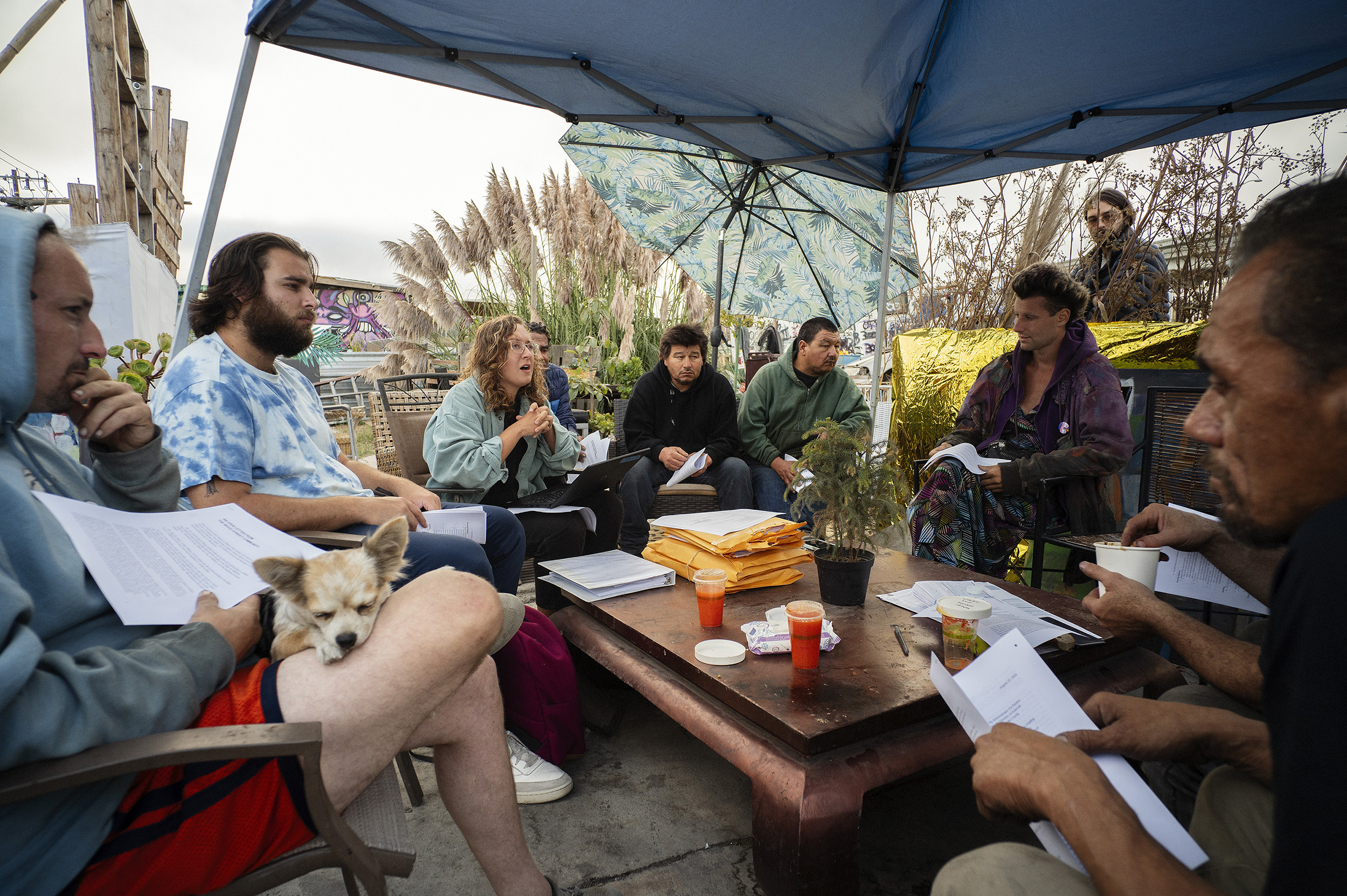Last week, EBCLC made our way to the Supreme Court.
In her powerful dissent in City of Grants Pass v. Johnson, Justice Sotomayor cited the experience of EBCLC client Erin Spencer, an unhoused disabled veteran.
It wasn’t how we expected our client advocacy to come before our nation’s highest court, but it was vital that our work served as a pointed reminder of what’s at stake in the upcoming election and of our power as individuals and communities to be civically engaged.
The decision in City of Grants Pass v. Johnson is damaging in many ways. By allowing local governments to criminalize homelessness, it denies the one constitutional protection that unhoused people had against the reach of state violence. It also threatens the future of millions of families who may be housed now but are only one paycheck or one crisis away from becoming homeless.
Yet all is not lost. As Justice Sonia Sotomayor also noted: “nothing in today’s decision prevents these States, cities, and counties from declining to criminalize people for sleeping in public when they have no available shelter.” This means that, whether we like it or not, it is within our hands to defend the unhoused; challenge unjust local laws that target the homeless; and fight for a society that refuses to criminalize poverty.
EBCLC has been in solidarity with unhoused communities throughout our 35–year history. We’re actively suing cities for violating the rights of disabled unhoused individuals. We‘re using creative legal interventions to stop law enforcement from disrupting and damaging the relationships between unhoused parents and their kids. We’re working with organized communities of unhoused people to draft and pass innovative legislation at the State level that prevents encampment sweeps.
In light of the City of Grants Pass v. Johnson decision, and in the opportunity presented by Justice Sotomayor in her dissent, we need you to support the work of EBCLC, not just for our current clients like Erin Spencer, but also for the thousands of people living in the streets of the Bay Area.
Advance Justice Today
Racial injustice and poverty limit access to legal support, especially for our BIPOC community.
By offering free legal support and education, while partnering with faithful advocates who believe in dignity and justice, we can create a thriving community and empower under-served populations. Will you join us? Click Here to Donate!
